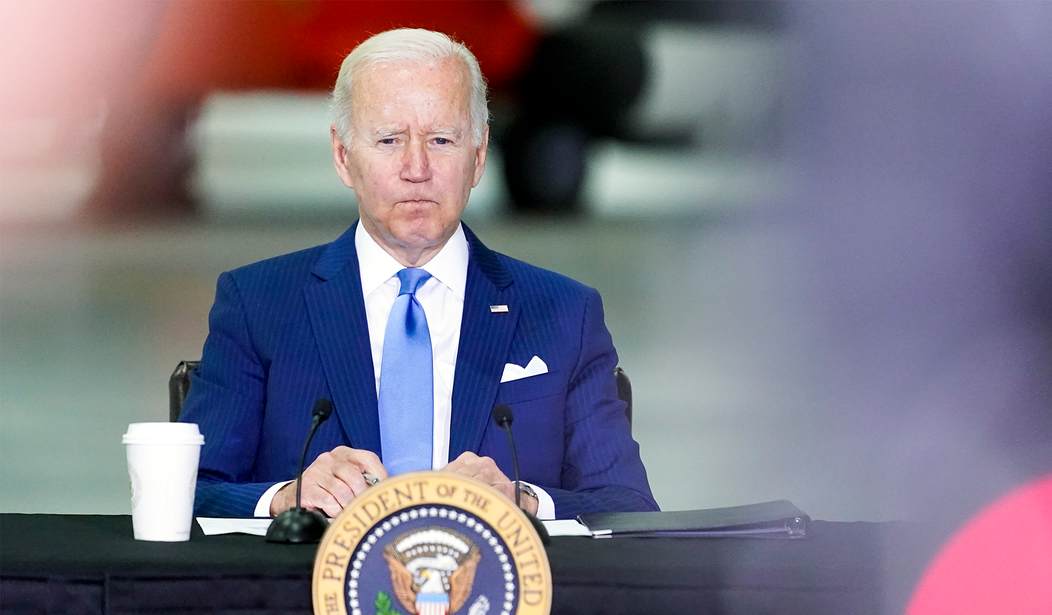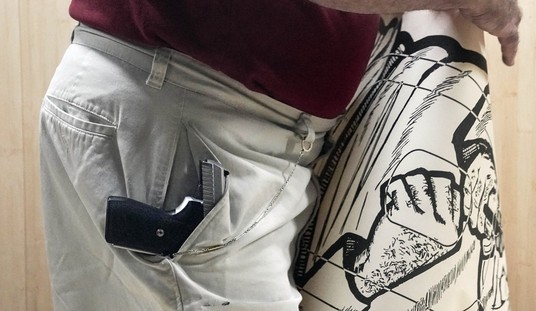Of course he is. The Biden administration sided with the state of New York in its quest to keep average law-abiding citizens from being able to bear arms for self-defense, and the Supreme Court said in no uncertain terms today that doing so is a violation of our rights protected by the Second and Fourteenth Amendment.
In his statement released after the Supreme Court’s opinion was handed down, though, the president made some pretty bizarre claims, including that the Supreme Court’s decision goes against the Constitution, while also trying to tie the mass shootings in Buffalo and Uvalde to the right to bear arms.
I am deeply disappointed by the Supreme Court’s ruling in New York State Rifle & Pistol Association v. Bruen. Since 1911, the State of New York has required individuals who would like to carry a concealed weapon in public to show a need to do so for the purpose of self-defense and to acquire a license. More than a century later, the United States Supreme Court has chosen to strike down New York’s long-established authority to protect its citizens. This ruling contradicts both common sense and the Constitution, and should deeply trouble us all.
In the wake of the horrific attacks in Buffalo and Uvalde, as well as the daily acts of gun violence that do not make national headlines, we must do more as a society — not less — to protect our fellow Americans. I remain committed to doing everything in my power to reduce gun violence and make our communities safer. I have already taken more executive actions to reduce gun violence than any other President during their first year in office, and I will continue to do all that I can to protect Americans from gun violence.
I urge states to continue to enact and enforce commonsense laws to make their citizens and communities safer from gun violence. As the late Justice Scalia recognized, the Second Amendment is not absolute. For centuries, states have regulated who may purchase or possess weapons, the types of weapons they may use, and the places they may carry those weapons. And the courts have upheld these regulations.
I call on Americans across the country to make their voices heard on gun safety. Lives are on the line.
There’s nothing in today’s decision that prohibits longstanding prohibitions on felons and those adjudicated as mentally defective from owning a firearm, much less carrying one. And the decision doesn’t implicate or cast doubt on the “shall issue” laws that are on the books in more than 40 states across the country. Justice Clarence Thomas’ majority opinion doesn’t even strike down all restrictions on where individuals can carry. In fact, it does the opposite by discussing what “sensitive places” may be off-limits to lawful carry. From page 21 of the opinion (citations omitted):
Consider, for example, Heller’s discussion of “longstanding” “laws forbidding the carrying of firearms in sensitive places such as schools and government buildings.” 554 U. S., at 626.
Although the historical record yields relatively few 18th- and 19th-century “sensitive places” where weapons were altogether prohibited—e.g., legislative assemblies, polling places, and courthouses—we are also aware of no disputes regarding the lawfulness of such prohibitions. We therefore can assume it settled that these locations were “sensitive places” where arms carrying could be prohibited consistent with the Second Amendment. And courts can use analogies to those historical regulations of “sensitive places” to determine that modern regulations prohibiting the carry of firearms in new and analogous sensitive places are constitutionally permissible. Although we have no occasion to comprehensively define “sensitive places” in this case, we do think respondents err in their attempt to characterize New York’s proper-cause requirement as a “sensitive-place” law.
In their view, “sensitive places” where the government may lawfully disarm law-abiding citizens include all “places where people typically congregate and where law-enforcement and other public-safety professionals are presumptively available.” It is true that people sometimes congregate in “sensitive places,” and it is likewise true that law enforcement professionals are usually presumptively available in those locations. But expanding the category of “sensitive places” simply to all places of public congregation that are not isolated from law enforcement defines the category of “sensitive places” far too broadly. Respondents’ argument would in effect exempt cities from the Second Amendment and would eviscerate the general right to publicly carry arms for self-defense that we discuss in detail below. Put simply, there is no historical basis for New York to effectively declare the island of Manhattan a “sensitive place” simply because it is crowded and protected generally by the New York City Police Department.
There are still going to be places where governments can restrict or prohibit the right to carry, but those “sensitive places” are going to be the exception and not the rule. As the Court made clear, there is a general right to publicly carry a firearm for self-defense, and if that general right is broadly limited that law will not withstand constitutional scrutiny.
A gun-grabber like Joe Biden is right to be disappointed in today’s decision, because it takes some of the most fundamental goals of the gun prohibition movement off the table. For those of us who remain committed to the Constitution and the protections it gives to our civil rights, however, there are an awful lot of reasons to cheer on today’s decision and its implications going forward.









Join the conversation as a VIP Member